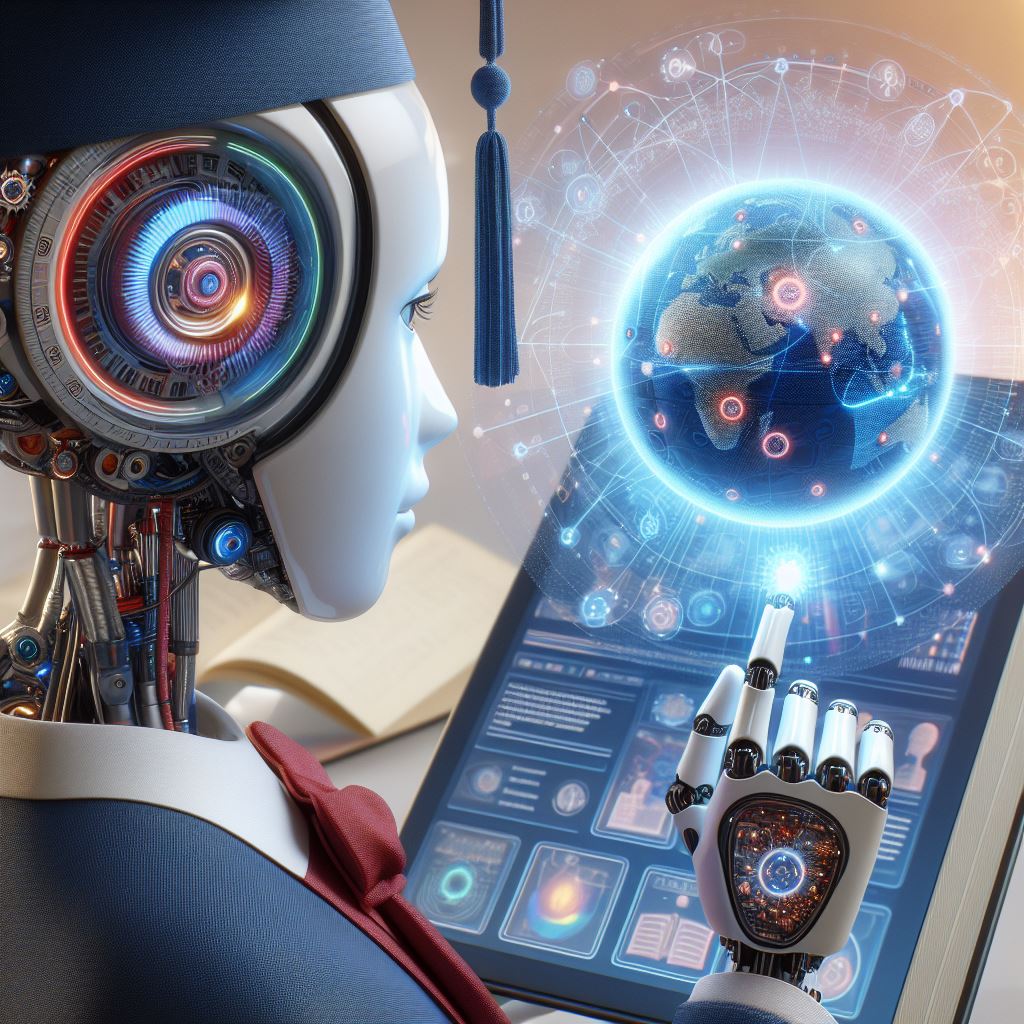IRIS: Transforming Education with India’s In a groundbreaking move, a school in Kerala, India, has introduced IRIS, the country’s first AI teacher robot. This innovative creation aims to revolutionize education by providing interactive features and personalized learning experiences for students.
The Birth of IRIS
IRIS, short for “Intelligent Robotic Instructor for Students,” is the brainchild of a team of engineers, educators, and AI enthusiasts. Their vision was to bridge the gap between traditional teaching methods and modern technology. With IRIS, they have taken a significant step toward achieving this goal.
Features and Capabilities
- Personalized Learning: IRIS adapts its teaching style based on individual student needs. It analyzes learning patterns, strengths, and weaknesses to tailor lessons accordingly.
- Interactive Sessions: Unlike conventional classroom lectures, IRIS engages students through interactive sessions. It encourages questions, discussions, and critical thinking.
- 24/7 Availability: IRIS is always “on.” Students can access it anytime, whether they’re at school, home, or even during holidays. This accessibility ensures continuous learning.
- Multilingual Support: IRIS communicates in multiple languages, making it accessible to a diverse student population.
- Assessment and Feedback: IRIS assesses student performance, provides instant feedback, and identifies areas for improvement. Teachers can use this data to enhance their teaching strategies.
How IRIS Works
- Natural Language Processing (NLP): IRIS understands spoken language and responds in a conversational manner. Students can ask questions, seek explanations, or discuss topics freely.
- Visual Recognition: IRIS recognizes facial expressions and gestures, allowing it to gauge student engagement and adjust its teaching approach accordingly.
- Adaptive Learning Algorithms: IRIS continuously learns from student interactions. Over time, it refines its teaching methods and adapts to changing educational needs.
Challenges and Ethical Considerations
While IRIS promises exciting possibilities, there are challenges to address:
- Privacy: How much student data should IRIS collect, and how can it be safeguarded?
- Teacher Collaboration: IRIS should complement, not replace, human teachers. Collaboration between AI and educators is crucial.
The Future of Education
IRIS represents a glimpse into the future of education. As AI technology evolves, we can expect more intelligent, personalized, and accessible learning experiences. With IRIS leading the way, classrooms may never be the same again.
In conclusion, IRIS is not just a robot; it’s a beacon of educational transformation. As it interacts with students, it leaves an indelible mark on their learning journey, shaping the minds of tomorrow.
Implementing AI learning within a school system with fidelity takes a comprehensive approach that involves stakeholders from IT, Leadership, the community, and most importantly, the classroom. Here are key components to address:
- Infrastructure:
- Robust IT infrastructure: Ensure schools have the necessary hardware, software, and network capabilities to support AI systems.
- Data storage and security: Implement secure data storage practices to protect student information.
- Access to devices: Ensure students and teachers have access to devices (computers, tablets, etc.) for seamless AI integration.
- Curriculum Design:
- Alignment with educational goals: Integrate AI tools that align with educational objectives, enhancing learning experiences.
- Customization: Tailor AI applications to fit specific subjects, grade levels, and student needs.
- Ethical considerations: Teach students about AI ethics, bias, and responsible use.
- Professional Learning:
- Teacher training: Provide ongoing professional development for educators to understand AI tools and their effective use.
- Pedagogical strategies: Equip teachers with strategies to integrate AI seamlessly into lessons.
- Collaboration: Foster collaboration among teachers to share best practices.
- Ongoing Support:
- Technical support: Offer timely assistance to troubleshoot AI-related issues.
- Feedback loops: Gather feedback from teachers, students, and parents to refine AI implementation.
- Continuous improvement: Regularly assess the impact of AI systems and make necessary adjustments.


dyona eduardo
stepan kozinski
jiani abuchanab
lstx1y
Hello just wanted to give you a quick heads up. The words in your post seem to be running off the screen in Chrome. I’m not sure if this is a format issue or something to do with browser compatibility but I figured I’d post to let you know. The style and design look great though! Hope you get the problem resolved soon. Many thanks